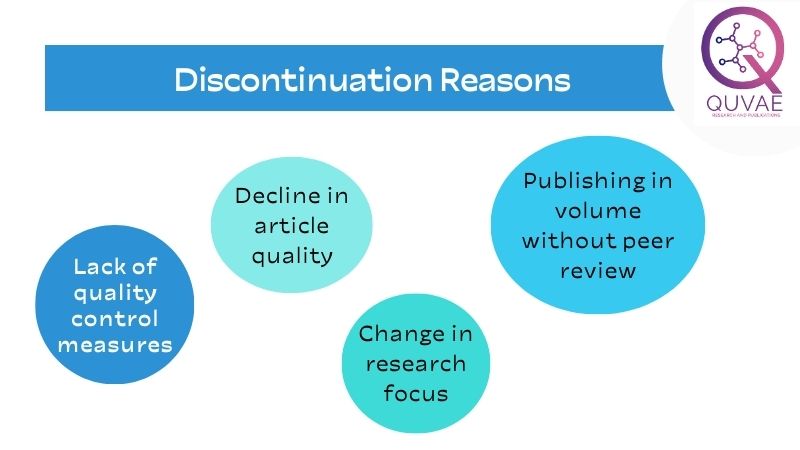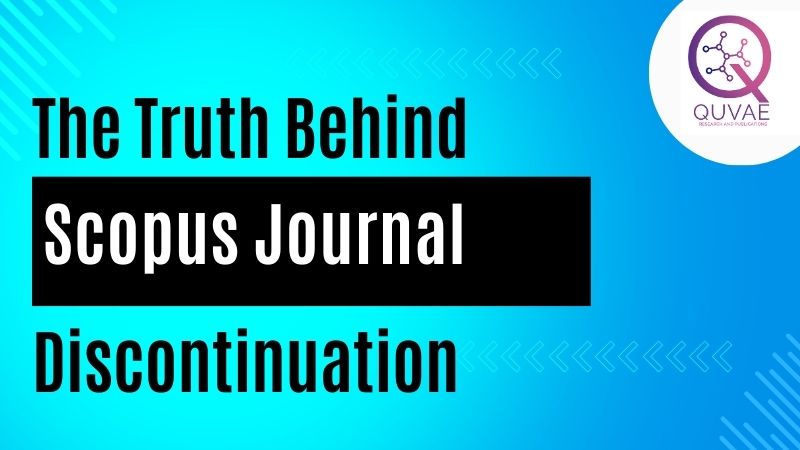Scopus is a widely used database of scholarly literature, providing access to millions of research articles published in thousands of journals worldwide. However, not all journals are included in Scopus; some are discontinued over time. Understanding why some journals are discontinued from Scopus can help authors, editors, and publishers make informed decisions about where to submit their work and how to improve the quality of their publications with understanding why journals are discontinued from scopus.
There are several reasons why Scopus may discontinue journals. One common reason is the need for more quality control measures. Scopus has strict criteria for inclusion, and journals must meet specific standards to be indexed in the database. These standards include peer review, editorial quality, and ethical practices. If a journal fails to meet these criteria or engages in fraudulent practices, such as publishing fake articles or manipulating citations, it may be removed from Scopus.
Another reason journals may be discontinued from Scopus is the decline in the quality or relevance of their articles. Scopus regularly evaluates the journals in its database to ensure they continue to meet its standards and provide valuable contributions to their respective fields. If a journal’s articles are found to be of low quality or lacking in relevance, it may be removed from Scopus to maintain the integrity of the database.

Journals may also be discontinued from Scopus due to changes in their research scope or focus. Scopus covers a wide range of disciplines, from science and technology to social sciences and humanities. However, as research trends and priorities shift over time, some journals may become less relevant to Scopus users. For example, a journal that focuses on a niche area of research that is no longer following the guidelines may be discontinued from Scopus.
In addition to the reasons mentioned above, journals may also be discontinued from Scopus due to publishing articles in more volume and not related to the scope of the journal. Also, journals that merge with other publications or that cease publication altogether may also be removed from Scopus.
It is important for authors, editors, and publishers to understand why journals are discontinued from fast publishing scopus journals, as it can impact their reputation and the visibility of their research. Being included in Scopus can increase the visibility and impact of a journal’s articles, and being removed from Scopus can have the opposite effect. To avoid being discontinued from Scopus, journals should prioritize quality control measures, stay up-to-date with research trends, and maintain financial and administrative stability.
In conclusion, there are several reasons why journals may be discontinued from Scopus, including lack of quality control measures, decline in article quality or relevance, changes in research focus, and publishing in volume without peer review. Understanding these reasons can help authors, editors, and publishers make informed decisions about where to submit their work and how to improve the quality of their publications. By prioritizing control measures, staying up-to-date with research trends, and maintaining quality, journals can increase their chances of being included in Scopus and maintaining their place in the scholarly community.

